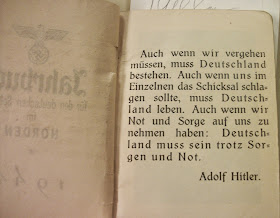The Bryansk Partisans
 |
| Soviet partisans in the forest near Polotsk, Byelorussian SSR (source) |
(For more, see the complete 1943 Moscow reports.)
Bill Downs
CBS Moscow
August 15, 1943
The German command has ordered counterattacks on the three active Russian fronts today, but reports say that all have failed. The counterattacks, supported by fresh reserves of tanks and men from the German rear, have succeeded in slowing the Red Army advance on some sectors. But the German position is Kharkov appears hopeless. Bitter fighting is continuing in the swamps around Karachev on the Bryansk front. The Russians report a steady advance on their new offensive from Spas-Demyanks.
You've heard a lot about Russian guerrillas and their achievements in this war. When I was in Orel Thursday, I met the greatest guerrilla fighter of them all—a man who organized the Bryansk guerrillas, the largest partisan army in Russia.
His name is Mikhail Romashin. He's short and stocky, his head shaved clean. He looks like a cheerful professional wrestler. He was decorated with the Hero of the Soviet Union for his guerrilla fighting and wears three other medals for the achievement of his army which still operates in the Bryansk forests. When Romashin headed this army behind German lines, they controlled almost completely some 3,000 miles of territory.
Romashin, who now is president of the Orel province, was perfectly willing to talk about the Bryansk partisans. Except, of course, to give their strength and the location of their headquarters.
Romashin was president of the Bryansk soviet when the Germans took the city. He fled to the forests with eighteen men and seven women. They formed the nucleus of the army. The partisans grew, first numbering hundreds and then numbering thousands. The army had a flour mill operated by six horses capable of producing two tons of a flour a day. They lived in dugouts and had club-rooms. Telephone lines even connected the different headquarters.
They set up turpentine distilleries and made a high grade product from the pine forests which they were able to use in captured German trucks. "We tried to use it in tanks," Romashin grinned, "but it wouldn't work."
I sat next to Romashin during a lunch the Orel city government gave the correspondents. He told me that, if I wanted to turn him over to the Germans, I would be a rich man.
The Germans know his home. To the person who can produce him dead or alive they will give 15,000 rubles, thirty acres of land, a house, one horse, and two cows.
(But Mikhail Romashin is not the kind of man you would double-cross, particularly after the complaint he made about German tobacco. "German tobacco is no good," he said. "We used to run out of tobacco in my army, so we would send out a scouting party to see what could be done about it. But invariably, when we ran into a party of Germans and killed them, they would be carrying only three cigarettes apiece. On top of that it was rotten smoking. Sometimes we used to think it was hardly worth it while killing them.")




































